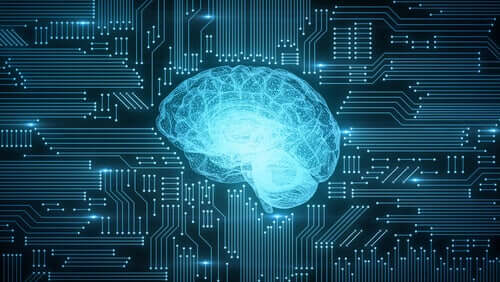Our brain can be considered the most powerful brain in the world, it has almost 100 billion neurons connected to each other and communicating at a faster rate than light, however, since digitization has invaded our lives, the question has arisen: can it eventually lead to the brain losing some of its abilities?
Because the brain is plastic and adaptable, some adjustments and changes should help optimize resources, that is, if we no longer need to deal with certain processes by digitization, the brain may compensate by improving other skills.
- Currently.
- We can find scientific results that indicate the changes our brain is undergoing.
- Especially in younger people.
In a relatively short time, the company has undergone a major technological change: generations just 30 years apart have left television behind and come to see and listen to a person in real time around the world.
Logically, it changes the way we behave, our habits, the way we clean, communicate and access information, so it impairs the functioning of the brain and even its anatomy.
According to Gary Small, a neuroscientist at the University of Los Angeles, the use of technology is changing the brain as we watch some neural networks strengthen and older ones weaken, this process is natural in the human brain, but these changes occur. specific structures or circuits; for example, on attention circuits.
Do we spend a lot of time with mobile phones, tablets or computers?In fact, all at the same time, which leads us to perform several tasks simultaneously. Multitasking is a cognitive ability we have, in which we manage to focus on several activities, but it is estimated that it supports up to two tasks maximum.
Thus, when the brain concentrates on two tasks, the prefrontal cortex divides its resources to do both correctly; however, those who perform more than two tasks at once have difficulty filtering and retaining information, paying attention to aspects that are not related to the task and have more difficulty moving from one task to another.
In addition, we will have less retention capacity and we may have to go back and look for information when we need it, however, it is suspected that this improves our decision-making capacity, as the senses sharpen and the digital environment invites speed. As a result, it also improves the speed of information processing, which makes us more efficient in that regard.
Children’s brains are particularly interesting in terms of the effect of digitization, because they are the ones that grow up in a technological environment, in fact, children born around 2000 are considered digital natives.
This means that once they reach the world, they are surrounded by technology and therefore spontaneously and naturally develop a different way of thinking and understanding the world.
These children grow up developing different and digital skills, not only for the environment, but also because adults bring them there. This happens when they are given a phone or tablet to entertain themselves. This, while it may seem harmless at first glance, can have important consequences for a child’s development.
On the one hand, it promotes a more sedentary lifestyle, which in turn has brain consequences that damage nerve fibers and generate worse cognitive performance, similarly it has been observed to significantly affect language development and increase cortisol levels, which has a detrimental effect on the brain.
As we have already said, the brain is able to adapt, and part of that adaptation is to dispense with neural circuits that are no longer needed or used, so if over the years and as a result of digitization some networks are no longer necessary, they would eventually degrade. This is called the “progress paradox. “
However, this is not negative, as the brain will have the ability and resources to invest in other aspects, for example, we don’t need to remember specific information about something, but we need to remember where we can access it. for example, you don’t have to keep all the two ideas, but you’ll have more resources to link the concepts.
Finally, digitization certainly changes our brains and, with it, the way we perceive and treat the world, but this does not mean that it is for the worse, we will remain human beings and our brain will probably remain the best computer that exists in addition, its unique and nutritional social capacity is irreplaceable.

